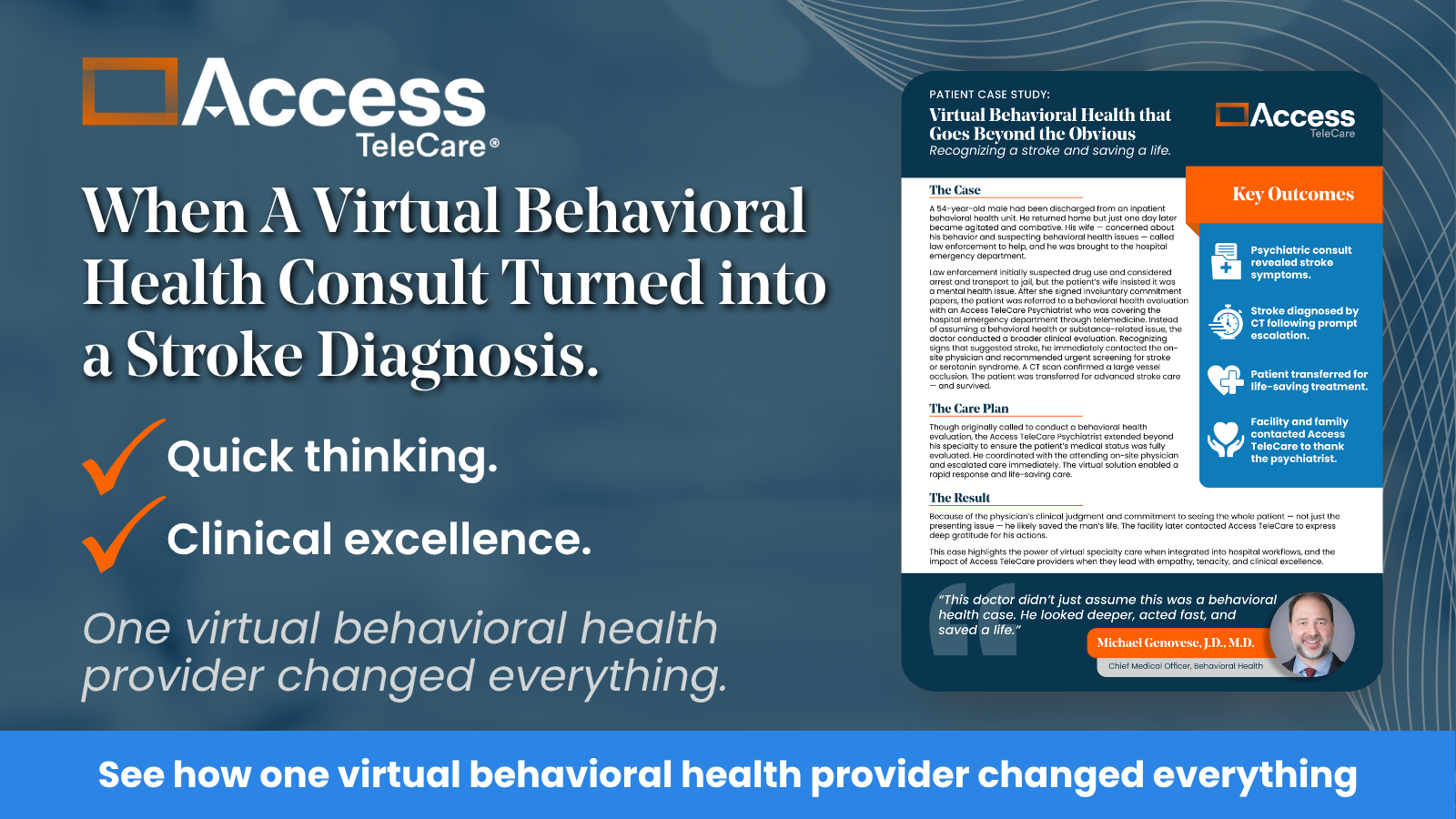By Dr. Carlos Collin
I remember when I worked at the National Institutes of Health, and my lab was next to Dr. Anthony Fauci’s. It was 1988, the year activists came to the National Institute of Allergy and Infectious Diseases to protest the department’s handling of the AIDS epidemic. Fauci was then, as he is now, head of the department, and already a highly-respected scientist and public health official.
But I was at the beginning of my career, a time when I was doing basic research at the biophysics and cellular biology of synaptic networks. I remember working in the dark halls of the government’s leading health research facility. Telemedicine wasn’t a glint in my eye, and neither was coronavirus—I was very far away from the daily challenges a clinician had to face in the real world.
The potential dangers of a global epidemic of biblical proportions were always present. But we were also overconfident in our belief that in the ivory towers of medicine, we would be able to prevent or treat any such illness with modern science and technology.
I remember now the heated discussions between epidemiologists and basic scientists from Fauci’s lab on the likelihood we would ever live through a global pandemic like this. “Just wait,” an epidemiologist said to us, “just wait until we get a coronavirus.”
And yet, here we are now, and even I have been surprised by the events of the past 6 months. Even having worked among the scientists who had modeled this exact kind of pandemic, I have found myself grappling with the uncertainty of the future, as everyone is. As a country, there are many things we don’t know.
“Carlos, you are a real doctor”
I had worked as a scientist for 12 years. I was very fortunate to have been mentored by Ron Mckay and Menahem Segal, two brilliant scientists who had a profound influence in my career and life. They are the yin and the yang of what science should be. Inspiring, creative and daring on one end, down to earth—brutally rational and realistic at the other end. I remember one day Ron came to me. “Carlos, you are a real doctor,” he said. “You need to put all this stuff to good use.”
I returned to school, completed residency at nearby Georgetown, and began working for Access TeleCare in telePsychiatry. I chose this field because it felt open, a place where you could go without prejudice and have the potential to do good work. My prior work in brain development and synaptic network physiology led me to the field of neurodevelopmental diseases, response to trauma, and resilience. I came to psychiatry with a biological perspective on the basic principles of medicine rather than any particular ideology.
What we feel vs. what we know
As a telePsychiatrist, I have a feeling there is a mental health crisis in the making, that the after-effects of this pandemic will be felt for years (or decades) to come, likely in the form of multiple psychiatric diseases—adjustment disorders are just the tip of the iceberg. This is based on some leading indicators, although I can’t know for sure. But these are often the ways in which we deal with psychosocial stressors such as those we are now grappling with: with impulsive behaviors and “acting out” behaviors.
The United States is likely to see increased rates of depression and anxiety, as well as the second order effects from increased rates of drug and alcohol abuse. We will see an increase in suicide rates. It’s possible these adjustment disorders will also trigger previously undiagnosed psychiatric illness, including major depression, bipolar mood and psychotic diseases. Those with PTSD from previous trauma may have that reactivated. And a higher risk of domestic violence and abuse, crime and antisocial behaviors are already showing up in the news.
However, as a citizen, a scientist, and, I must acknowledge, a history nut, I must add some words of caution. I believe it is the role of scientists right now to educate, to warn people, to become a source of rational thinking, and a little bit of optimism maybe. But also to add balance.
A brief history: outcomes matter
When you look at history, it seems that if you want to gauge the lasting psychological impacts of a national trauma, it is very likely that outcomes matter. A classic example on the top of many people’s minds now (perhaps because of Erik Larson’s recently released book on the subject, The Splendid and the Vile, is the response of the British people to the mass bombing of civilian areas during the Blitz.
We know from studies of the civilian populace at the time that, contrary to what the Germans had expected, widespread bombing actually increased morale among the British people. And as Larson’s book makes abundantly clear, no doubt they were aided and strengthened by the leadership of Winston Churchill.
Now think of the German populace. They too faced relentless bombing of civilian populations, but it certainly mattered, in the end, that the final outcome of the war for them, after all the hardship, was national destruction and humiliation. I don’t think Germany will truly recover from that for many generations.
The Russian people endured even more hardship during the war—death on a scale far greater than their Western allies, famine, the winters (harsh even by Russian standards), and the blockade of Leningrad. On top of these challenges was layered the morally corrosive ideology of the Stalinist regime.
And yet, in a somewhat bewildering historical footnote, many older Russians continued to look back on The Great Patriotic War as the best of times, difficult as they were, and upon Stalin as the Great Father, rather than a murderous dictator. Indeed, the collective capacity of humans to make sense of, cope with, and recover from traumatic events is truly astonishing.
The uncertainty of the future
The truth is that we don’t know how this pandemic will turn out, and therefore we don’t know what the scale of the mental and physical health crisis we are facing will be.
As Arthur C. Brooks wrote in The Atlantic in April:
At present, COVID-19 is more of an uncertainty than a risk. Will you get the virus? What happens if you do? When will the crisis end? Are we creating an economic depression? People can opine and make informed guesses, but no one really knows the answers to these questions.
Three months later, we are only marginally closer to answers. There seems to be a constant tendency to treat an absence of evidence as evidence of absence. The two are not the same thing.
As for what we do know: we know that a Kaiser Family Foundation poll found the pandemic has negatively affected the mental health of 56 percent of adults. We know that calls to the national mental health hotline are up 1,000 percent from the year before. We can also look to data from local crisis intervention teams and law enforcement in the field. These are leading indicators of what is to come, and hospital leaders should be monitoring them closely.
But if history is an indication, how we handle the pandemic itself will be a contributory factor in the mental health of the nation afterward and into the future. We don’t know if pandemic-related psychological conditions will be stigmatized or normalized. We don’t know if the nation will be able to heal the wounds of collective suffering and trauma. We don’t know if our economy will recover or will become mired in a lengthy stagnation. We don’t know if our country’s mental health system will buckle or break, or if it will be strengthened and resilient.
These are the questions that scientists must turn themselves toward answering. With openness and balance, with rigorous data, with clear communication to the public, and perhaps not without a bit of optimism as well.
Carlos Collin, M.D.
Dr. Collin received his M.D. degree from the Universidad de Chile School of Medicine in 1980 prior to completing his Psychiatry residency at Georgetown University in 2002. He then completed a clinical fellowship in Psychiatry at the NIH National Institute of Mental Health in 2003. Dr. Collin is board-certified in General Psychiatry and currently serves as a psychiatrist at the Northern Virginia Psychiatry Group, Washington Adventist Hospital, and the Adventist Rehabilitation Hospital in Rockville, Maryland. He is also a lecturer at Georgetown University School of Medicine.
***
If your hospital is interested in learning how telePsychiatry can help you prepare for a potential mental health surge, please contact us.








